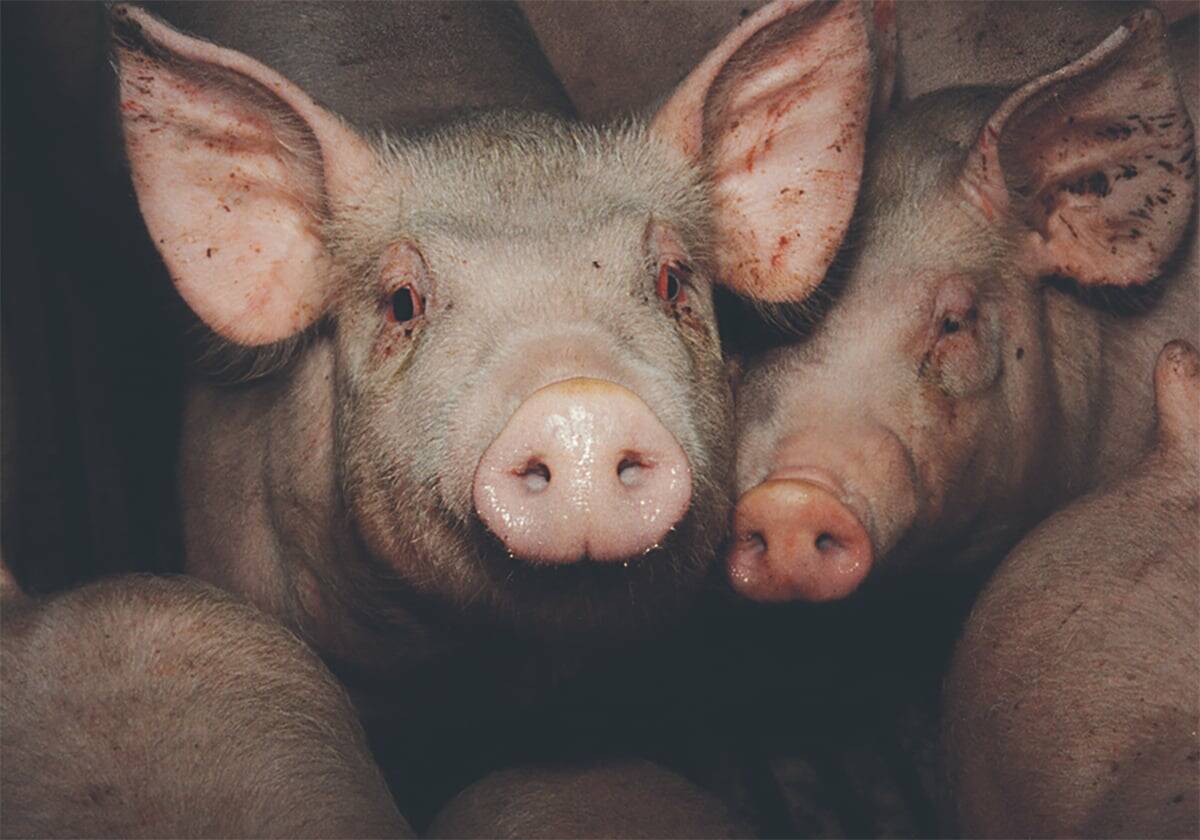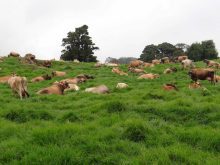University of Waterloo history professor says his study of free market systems convinced him they inevitably hurt producers and lead to bailouts
Count Bruce Muirhead as a major fan of supply management.
The history professor and associate dean at the University of Waterloo told attendees at Alberta Milk’s recent annual general meeting that supply management is the best system in the world for dairy production, and good for consumers, too.
“Australia, the EU and the U.S. overproduce milk at a phenomenal rate — there aren’t enough markets for it,” said Muirhead.
“Prices generally have to be heavily subsidized by taxpayers, or they have other support mechanisms to keep farmers from going bankrupt. In Canada, we have none of that.”
Read Also

Scientists discover cause of pig ear necrosis
After years of research, a University of Saskatchewan research team has discovered new information about pig ear necrosis and how to control it.
Muirhead conducted a study funded by the Norwegian government that compared the dairy production models of Canada, the U.S., Europe, Australia, New Zealand and Norway.
“I knew about supply management because I had worked on dairy farms when I was much, much younger,” he said. “But I never knew about the specifics. When I got involved with the pro-ject, I hit upon supply management as a method of organizing dairy supply, which seemed to me to be a bang-on method.
“If there’s any way that you can rationalize farming and make it include the farmer, the consumer and the processor in the equation of price determination, that’s a system that is absolutely superior.”
He noted that since supply management was established in the 1970s, the number of milk processors has shrunk dramatically and a small number of very large processors now dominate the market. That’s also the case in Australia, and that country shows a free market can fail farmers, he said. Milk in that country is often sold as a loss leader and so many dairy farmers are losing money, the Australian government is contemplating how it might regulate milk prices, said Muirhead.
Prominent critics of supply management — such as National Post columnist Andrew Coyne and the Globe and Mail’s John Ibbitson — argue from an ideological, rather than factual, point of view, he said.
“They want to dismantle it because they think that the consumer would benefit from having the private sector operate the system,” he says. “They have an inherent dislike of any sort of regulation because of their ideological predisposition, I guess.”
The consumer might see lower prices, but producers would suffer if supply management was scrapped, he said.
“Consumers aren’t the only ones in this equation. There are producers and processors as well. And if you don’t have a producer, you don’t have a product,” he says.
Moreover, most Canadians aren’t calling for an end to supply management, he said.
“As it stands now, milk is reasonably priced as compared to other places, and as Canadians, we spend relatively little of our after-tax income on food. People are really happy with how the system operates,” he said.















